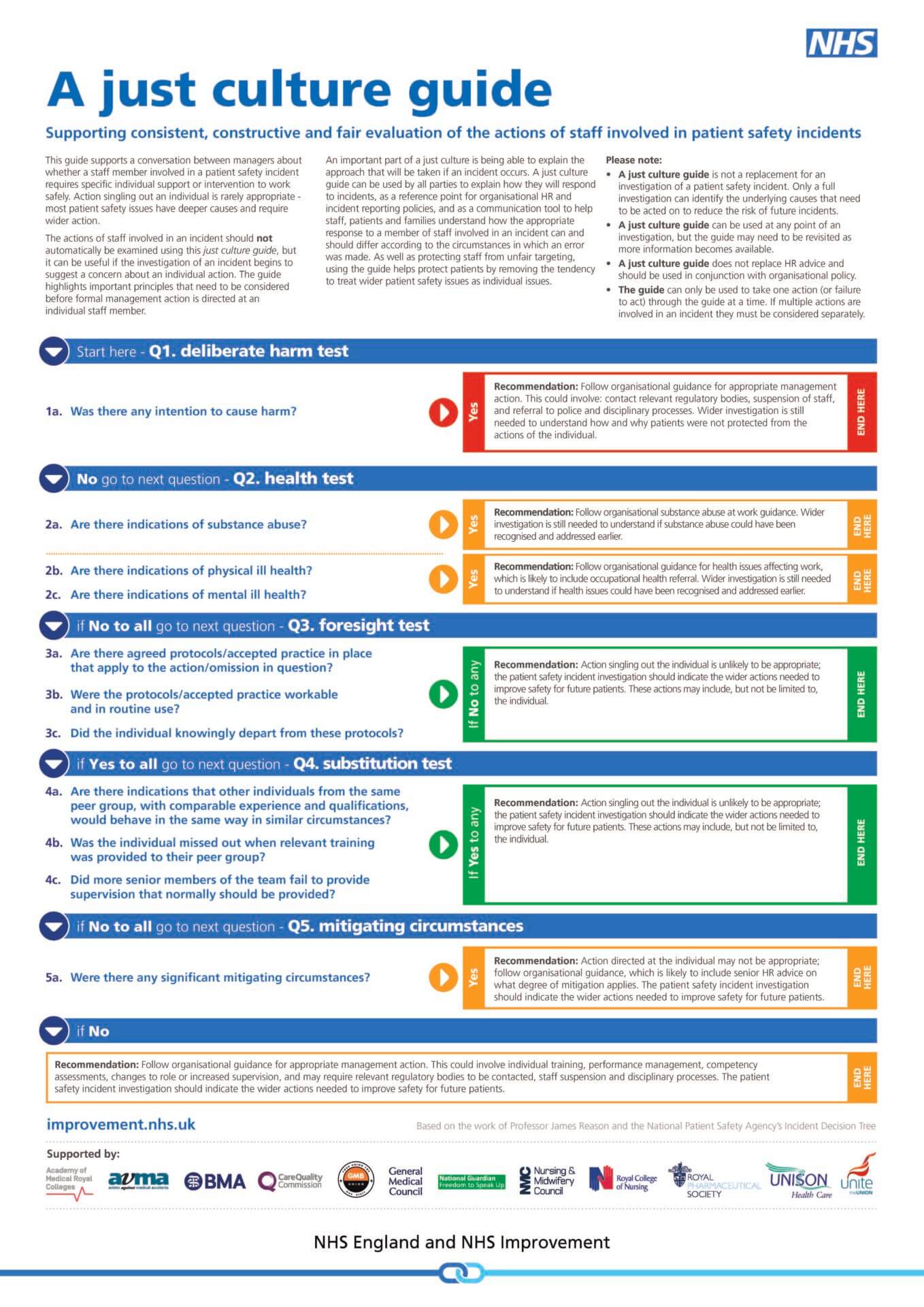Patient Safety - culture and psychological safety at work
Safety culture is one of the two key foundations of the NHS Patient Safety Strategy. NHS England define a positive safety culture as one where the environment is collaboratively crafted, created, and nurtured so that everybody can flourish to ensure brilliant, safe care by:
- Continuous learning and improvement of safety risks.
- Supportive, psychologically safe teamwork.
- Enabling and empowering speaking up by all.
Avoiding unjust blame, the just culture, and saying sorry
We want colleagues to feel comfortable reporting incidents and errors without fear that they will experience unjust blame. Most of the time when things go wrong in healthcare it's because of the systems and processes in place, not because a staff member had the intention to cause harm.
Just culture is a concept related to systems thinking which emphasises that mistakes are generally a product of faulty organisational cultures. systems and processes, rather than solely brought about by the person or people directly involved.
The just culture guide produced by NHS England encourages managers to treat staff involved in a patient safety incident in a consistent, constructive and fair way.
That said, saying sorry is always the right thing to do. It is not an admission of liability but acknowledges that something could have gone better. An apology is the first step to learning from what happened and preventing it recurring. Saying sorry meaningfully when things go wrong is vital for everyone involved in an incident, including the patient, their family, carers, and the staff that care for them.
Psychological safety and voicing concerns
Psychological safety is the shared belief held by members of a team that it’s okay to express their ideas and concerns, to speak up with questions, and to admit mistakes, all without fear of negative, unjust consequences. We want to welcome openness and transparency and encourage incident reporting, as this helps us to learn from what went wrong and allows us to make changes to avoid something similar happening again.
Similarly we need our colleagues to feel confident that their concerns and/or ideas will be listened to and responded to appropriately when voiced. We need them to feel empowered to speak up, especially when colleague concerns and/or ideas could improve the quality of services and help keep our patients safe.




